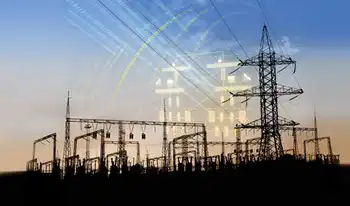Budget takes wind out of clean energy sails
OTTAWA, CANADA - Glen Estill is one of a small group of entrepreneurs across the country trudging along a narrow green path.
After seeing the federal budget, which effectively ended a popular subsidy program to encourage renewable energy producers, the president of Sky Generation Inc., a small wind energy firm in Lion's Head, north of Owen Sound, Ont., says he may have to cool his heels.
He built three wind farms between 2002 and December 2009. Two of those have benefited from a federal program that sought to level the economic playing field between polluting energy sources, such as coal and oil, and clean energy from the wind, sun and water.
Now that the federal incentive of one cent per kilowatt hour of energy produced has nearly run out, Estill predicts other small firms like his will have to reconsider their business plans.
"I'll sit on my hands if I don't have the economics right," he said.
The $1.43 billion ecoEnergy program sought to generate 4,000 megawatts of energy from non-emitting sources by 2011. There were applications from producers to generate about 10,000 megawatts of energy, but 95 per cent of the money has already been spent.
Now, officials in the renewable energy industry say that Ottawa's budget decisions have put in jeopardy the goal of producing 90 per cent of Canada's electricity from clean sources. Currently about 77 per cent of electricity is generated from non-emitting sources.
"Basically it means the federal government has no policy to encourage renewable energy whatsoever," Estill said. "That's shocking, isn't it?"
The throne speech said the government will continue investment in clean energy technologies, but the federal budget suggests the Tory vision relies on nuclear energy, which will receive $300 million this year, and cutting emissions from the oil and gas sector.
Critics say that nuclear power plants and technology to trap carbon emissions from the oilsands underground, an $800 million initiative announced in 2009, will take years to produce tangible environmental benefits. Renewable energy projects, in contrast, can be up and running just months after project approvals are completed.
In lieu of subsidies, the government plans to introduce regulations to encourage renewable energy generation, Environment Minister Jim Prentice said.
But the absence of clean energy incentives could impact heavily on the Canadian economy, said Robert Hornung, president of the Canadian Wind Energy Association.
The United States, for example, has a clean energy incentive program that pays 2.1 cents per kilowatt hour produced. That fund has been extended to 2012 and, coupled with tax credits for clean energy producers, presents a tantalizing lure for multinational companies deciding where to base operations.
For energy giant TransAlta, which has wind energy and hydroelectricity operations in Canada, financial incentives are only one factor in deciding where to base operations, said Don Wharton, a vice-president of the Calgary-based firm.
But that could become a larger issue if the U.S. becomes a major manufacturer of renewable technologies – something to which U.S. President Barack Obama aspires.
The American incentives for clean energy are designed to transform America into a green economy.
Estill says Prime Minister Stephen Harper should be looking at the issue through the same lens.
When Sky Generation, Estill's one-person company, was building its four-turbine Proof Line Wind Farm in Lambton Shores between September and December 2009, it put two dozen people to work at the Canadian subsidiary of Vestas, the Danish firm that supplies and services the windmills. Another 40 people were employed digging the holes, pouring the concrete foundations and erecting the turbines.
"The other neat thing about the whole program is it pays out over 10 years, so essentially what you're doing is you're incenting that project to be built today... and you don't have to pay for it for 10 years. Well, that's kind of a beautiful thing for a government that is complaining about deficits," Estill said.
Related News

EDP Plans to Reject $10.9 Billion-China Three Gorges Bid
BEIJING - EDP-Energias de Portugal SA is poised to reject a 9.1 billion euro ($10.9 billion) takeover offer from China Three Gorges Corp. on the grounds that it undervalues Portugal’s biggest energy company, according to people with knowledge of the matter.
The board of EDP, which may meet as early as this week, views the current bid of 3.26 euros a share as too low as it indicates a premium of 4.8 percent over Friday’s close, said the people, asking not to be identified because the discussions are private. EDP is also working with advisers including UBS Group AG and Morgan…




